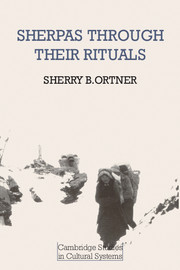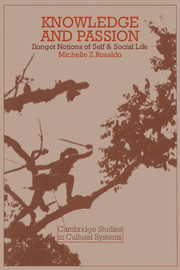2 results in Cambridge Studies in Cultural Systems

Sherpas through their Rituals
-
- Published online:
- 05 June 2012
- Print publication:
- 14 April 1978

Knowledge and Passion
-
- Published online:
- 05 June 2012
- Print publication:
- 31 March 1980

